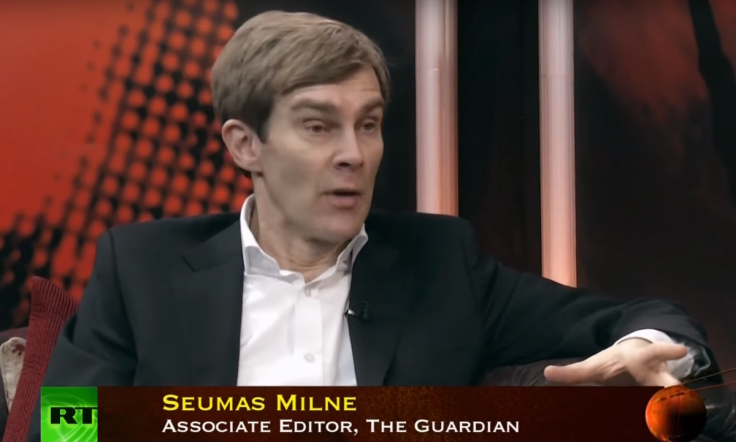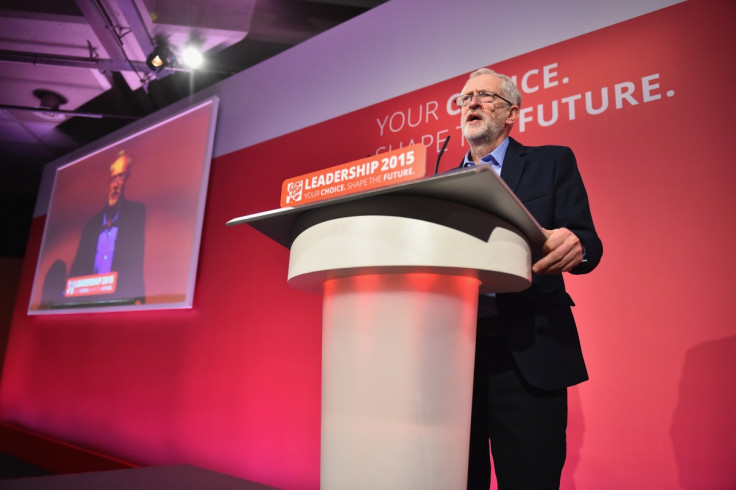Seumas Milne: Yet another Corbynista who loves 'humanity' but appears to hate people

For the first time in my life, I have this week seen communists approvingly quoting the late anti-communist historian Robert Conquest. When asked who was worse, Stalin or Hitler, Conquest was not as ready to claim equivalence as one might assume of an historian of the Gulag. Yes, Stalin might have murdered more than Hitler, Conquest reflected, but then he had lots more time in which to do so. Finally, Conquest said: "Hitler just feels worse."
The re-emergence of this esoteric debate – a quarter of a century after the end of the Cold War – might seem odd but then British politics is convulsed by peculiarities at present. Until a week ago, I would have pointed to the election of Jeremy Corbyn as an example of the unusual times we live in. Yet the Labour Party raised the stakes by appointing Seumas Milne, an acting editor at the Guardian, to be its chief spin doctor. A week ago, we lived in unusual times; today, Labour Party politics looks nothing short of extraordinary.
The appointment of Milne stands out like a rose in a bed of thistles because, as you have probably heard already, he holds what are politely called "unconventional" views, particularly on the historical record of communism.
For Milne, "communism in the Soviet Union, eastern Europe and elsewhere delivered rapid industrialisation, mass education, job security and huge advances in social and gender equality". Never mind the 15 million killed in various terrors. As Milne revealingly puts it, if the obscene death toll attributed to the Soviet Union "becomes current currency, it adds credence to the Stalin-Hitler comparison". We couldn't have that now, could we?
Thus Milne has been branded a "Stalinist"' by his detractors. His supporters have responded by arguing Milne is at least partially right – Stalin was not as bad as Hitler – and have pointed to the words of Conquest and retorted: "Ah, but even anti-Sovietchik number one believed that Nazism was worse than Stalinism."
Whether the Soviet regime was as bad as the Third Reich is not a debate I wish to have here, though if you find yourself vying for the moral high ground with Adolf Hitler, I would suggest your political ideology is in trouble. The more interesting thing about Milne is how neatly his political positions fit inside a broader ideological framework in which human beings are not really human beings at all – but rather pawns to be evoked for the furtherance of political ends.
Thus the number of Stalin's victims is always revised down, while the deaths caused by, say, America and Britain's catastrophic war in Iraq are always inflated. As Milne admits, the importance of accuracy is secondary; of greater importance is whether or not the numbers "add credence" to a particular point of view.
Putting the Soviet Union to one side, Milne's proclivity for ideological abstractions over living people is demonstrated by the fact that the playing down of Soviet crimes is just one of the many strings to his anti-Western bow. As well as attempting to rehabilitate Stalin – Stalin! – Milne has penned articles in defence of Slobodan Milosevic, dictatorship in Iran and Cuba, Islamism in Tunisia, chauvinism in Russia and the jihadists who murdered British troops and Iraqi civilians with such fervour in post-Saddam Iraq.

The nature of the regime or movement sticking two fingers up at America is unimportant you see; what matters to Milne is that they point their AK47s at the Stars and Stripes. Ultimately, victims are only victims when their victimhood serves an anti-Western world view.
Mexican writer Octavio Paz once said Conquest's books on the Soviet Terror had "closed the debate" on Stalinism. In a literal sense this is true: few today bother to devote themselves to the creation of the sorts of societies envisioned by Stalin and Lenin. But like Milne, many people still lug around a yearning for utopia.
They are desperate (or so they think) to make the world a "better place" and thus are willing to believe a goldfish is a racehorse – that dictators are liberators, that Vladimir Putin's invasion of Crimea was "clearly defensive" and the Nazi-Soviet Pact was "an instrument of defence, not aggression" (Milne's words).
In the end, the political trajectory of Milne and those like him offer a striking example of how the desire to believe in something carries its own dangers. The Soviet apologetics, the unremitting search for a worthy third world revolution, the fawning over the thug in the Kremlin – all show what happens when politics meets religion; or more accurately, when politics becomes a religion, and where those unfortunate enough to live under governments and movements that confirm a pre-existing world view are effectively non-people, sacrificed on the altar of idiotic anti- Americanism.
Here in the West, educated people have long proclaimed the death of religion – while simultaneously channelling their own religious impulses into political manias and other "secular" concerns. Thus it is more truthful than most commentators realise when they attribute the rise of Corbyn to his giving Labour activists "something to believe in". The need for "another world" is as strong as ever, even among those who consider themselves free of such humbug.
Thus, Milne resembles the communist fellow travellers the writer Arthur Koestler once described as peeping Toms, peering through a hole in the wall at history while not having to experience it themselves. Milne is another of those dull fellows who loves "humanity" yet hates people – or who is at least willing to throw the latter under the proverbial bus (or Soviet tank) as long as it keeps his own ideological house of cards intact.
© Copyright IBTimes 2025. All rights reserved.





















